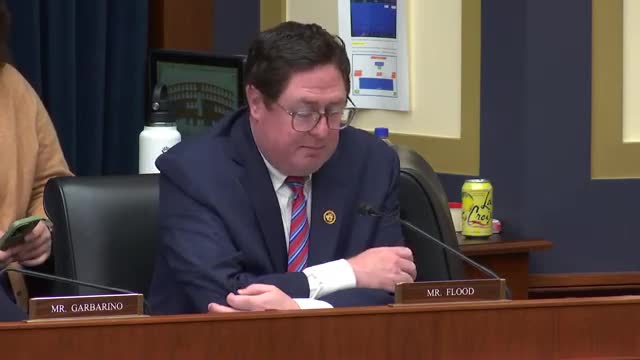Congress debates urgent reforms for affordable housing crisis
July 25, 2024 | Financial Services: House Committee, Standing Committees - House & Senate, Congressional Hearings Compilation

This article was created by AI summarizing key points discussed. AI makes mistakes, so for full details and context, please refer to the video of the full meeting. Please report any errors so we can fix them. Report an error »

During a recent government meeting, discussions centered on the regulatory challenges facing manufactured housing, particularly the conflicting roles of the Department of Housing and Urban Development (HUD) and the Department of Energy. Mister Compton highlighted the bureaucratic struggles between these agencies, emphasizing that the rapid pace of manufacturing often outstrips the slower regulatory processes. He advocated for a streamlined approach under a single agency, preferably HUD, to enhance efficiency and reduce construction costs for affordable housing.
Compton pointed out the pressing need for affordable housing solutions, citing the exorbitant costs of traditional homes in his Nebraska district, which often exceed $400,000. He proposed that starting with more affordable options, such as homes priced around $175,000, could help families build equity and eventually transition to better housing.
The conversation also touched on the complications arising from environmental reviews, particularly phase one environmental reports. Compton explained that the six-month validity of these reports often leads to repeated assessments due to delays in city processing times, further complicating housing development.
In response to a question about legislative support for housing development, Compton suggested removing passive activity loss limits from the Internal Revenue Code. This change would incentivize private investors and small businesses to engage in residential real estate, potentially easing local regulatory burdens.
Congresswoman Tlaib raised concerns about the balance between eliminating regulatory burdens and ensuring effective stewardship of public funds. She referenced the historical struggles for disability rights and the ongoing efforts to implement the proposed affirmatively furthering fair housing rule. Senior Vice President Couch supported this initiative, explaining that it would require housing authorities to demonstrate compliance with fair housing laws and actively address community housing needs, or risk losing HUD funding.
The meeting underscored the complexities of housing regulation and the urgent need for effective policies that promote affordable housing while ensuring fair access for all community members.
Compton pointed out the pressing need for affordable housing solutions, citing the exorbitant costs of traditional homes in his Nebraska district, which often exceed $400,000. He proposed that starting with more affordable options, such as homes priced around $175,000, could help families build equity and eventually transition to better housing.
The conversation also touched on the complications arising from environmental reviews, particularly phase one environmental reports. Compton explained that the six-month validity of these reports often leads to repeated assessments due to delays in city processing times, further complicating housing development.
In response to a question about legislative support for housing development, Compton suggested removing passive activity loss limits from the Internal Revenue Code. This change would incentivize private investors and small businesses to engage in residential real estate, potentially easing local regulatory burdens.
Congresswoman Tlaib raised concerns about the balance between eliminating regulatory burdens and ensuring effective stewardship of public funds. She referenced the historical struggles for disability rights and the ongoing efforts to implement the proposed affirmatively furthering fair housing rule. Senior Vice President Couch supported this initiative, explaining that it would require housing authorities to demonstrate compliance with fair housing laws and actively address community housing needs, or risk losing HUD funding.
The meeting underscored the complexities of housing regulation and the urgent need for effective policies that promote affordable housing while ensuring fair access for all community members.
View full meeting
This article is based on a recent meeting—watch the full video and explore the complete transcript for deeper insights into the discussion.
View full meeting